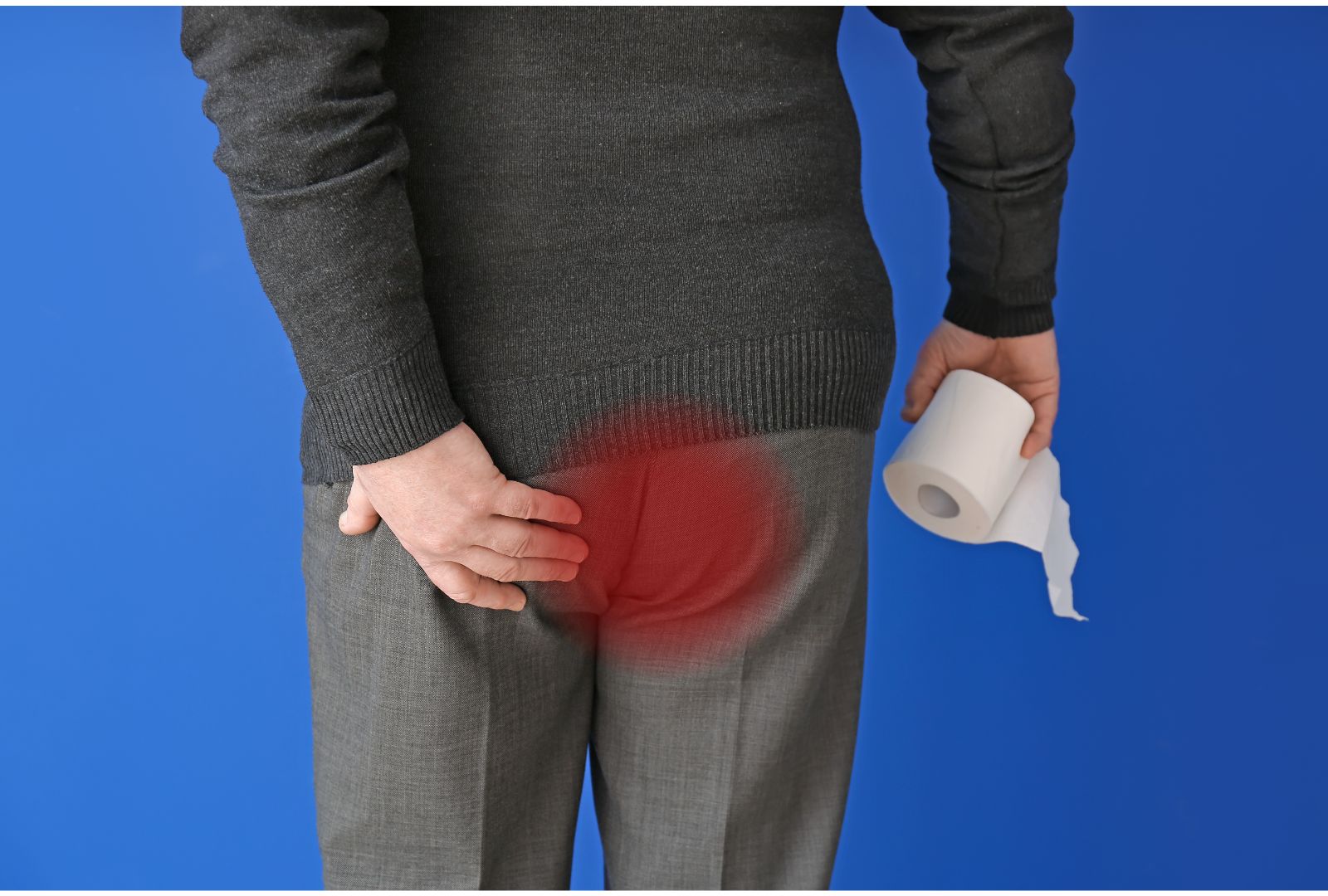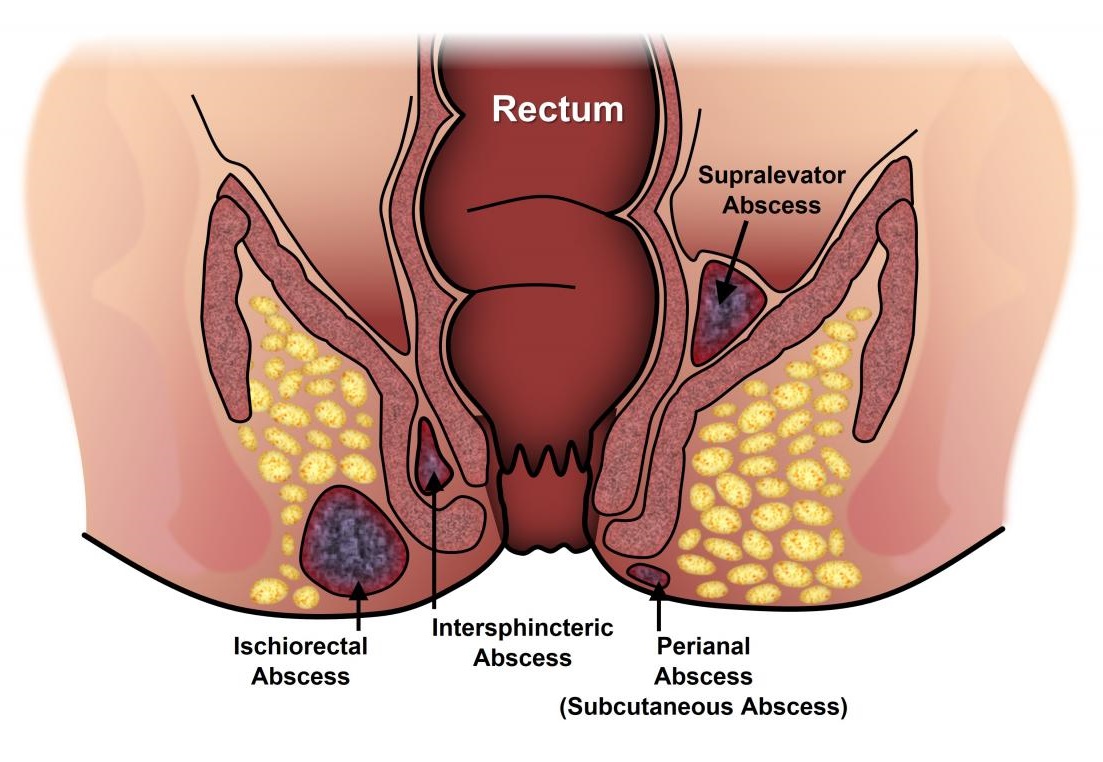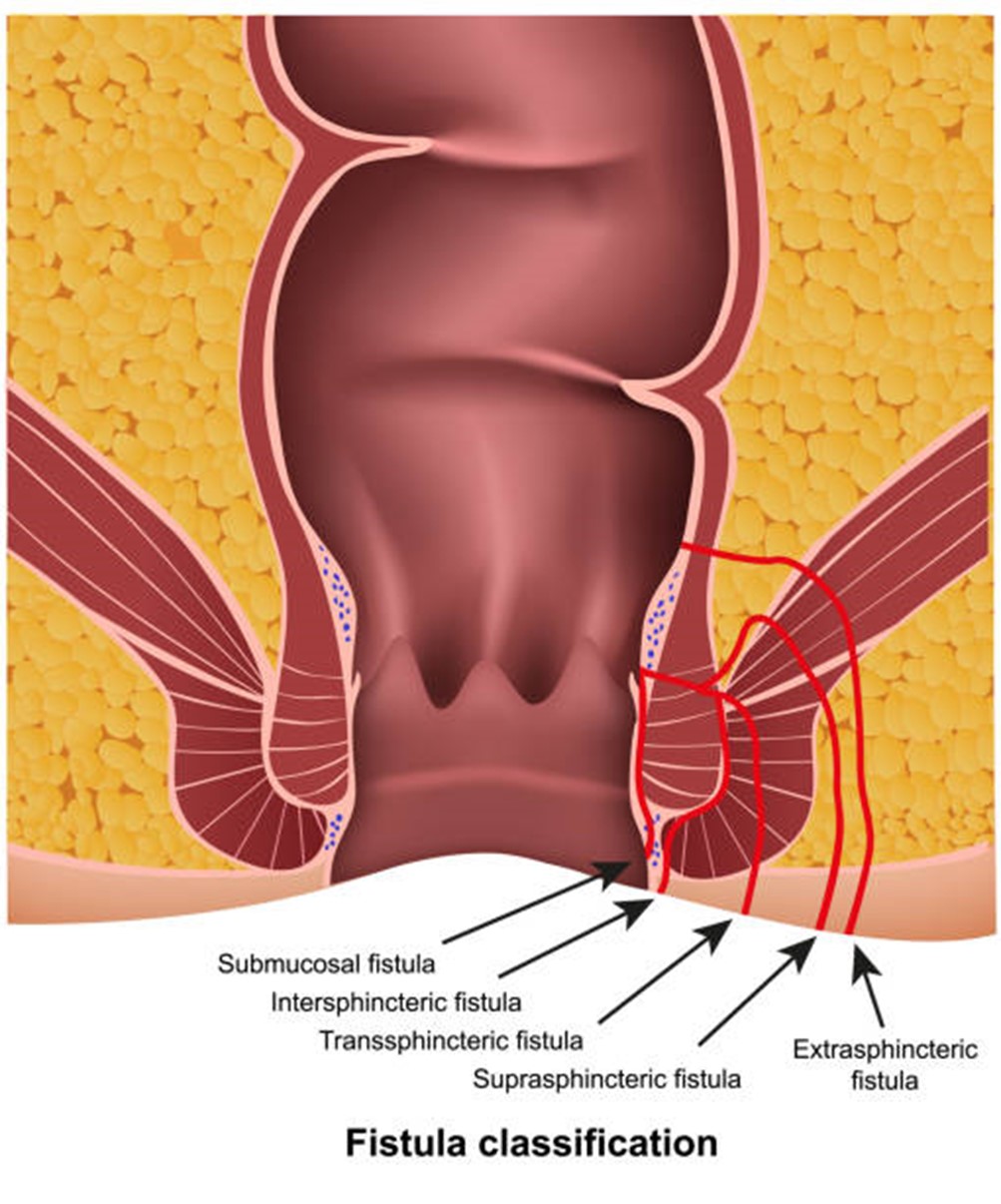Book an Appointment
Best Fistula treatment in Hyderabad and
advanced laser treatments
Causes of Anal Fistula:
- Infection in an anal gland leads to abscess formation.
- Crohn’s disease, ulcerative colitis, and inflammatory bowel disease.
- Trauma or injury to the anal region.
- Tuberculosis affects the anal area.
- Conditions causing chronic inflammation
- Radiation therapy for pelvic cancers.
Diagnosis and Tests for Anal Fistula:
To diagnose an anal fistula, a healthcare provider will perform a physical examination and take a medical history. They may also order imaging tests, such as an MRI or ultrasound, to help visualize the fistula.
USFDA - Approved Procedure
Support in Insurance Claim
No-Cost EMI
1 Day - Hospitalization

Anal Fistula Treatments:
Treatment for an anal fistula will depend on the severity and location of the fistula. Mild cases may be treated with antibiotics or anti-inflammatory drugs to reduce inflammation and infection. In more severe cases, surgical intervention may be necessary. Surgical options for treating a laser fistula include the following:
1. Anal Fistulotomy: This surgical procedure involves cutting open the fistula and allowing it to heal from the inside out. The procedure is usually done under general anaesthesia, and patients may need to wear a temporary colostomy bag for several weeks.
2. Seton placement: A seton is a piece of string or surgical thread that is placed through the fistula to help keep it open and drain pus. It is usually left in place for several weeks or months.
3. Fibrin glue: This is a non-surgical procedure that involves injecting a special glue into the fistula to seal it shut.
Laser Surgery for Anal Fistula:
Laser surgery anal fistula is a minimally invasive surgical technique that uses a laser to make incisions and perform surgeries. It has several advantages over traditional surgery, including less bleeding, less pain, and a quicker recovery time. Laser surgery is often used to treat conditions such as fistulas, piles, and anal fissures.
During fistula laser surgery, the laser is used to create an incision in the skin near the fistula. The fistula is then carefully opened and drained, and the incision is closed with stitches. The laser cauterizes the tissue as it cuts, reducing bleeding and promoting healing. For more information on laser treatment for anal fistula, contact us.


Open Surgery for Anal Fistula:
Open surgery is a traditional surgical technique that involves making a large incision in the skin to access the affected area. It is often used to treat more complex cases of anal fistulas or when other treatment options have failed. During open surgery, the anal fistula is carefully opened and drained, and any damaged tissue is removed. The incision is then closed with stitches.
Open surgery is generally performed under general anesthesia and can take several hours to complete. Patients may need to stay in the hospital for a few days after the surgery to recover.
Post-operative Care After Fistula Surgery:
After fistula surgery, it is important to follow your healthcare provider’s instructions for post-operative care to ensure proper healing and reduce the risk of complications. Here are some general tips for post-operative care:
1. Take medications as prescribed: Your healthcare provider may prescribe pain medication, antibiotics, or other medications to help with healing and prevent infection. Make sure to take them as prescribed and finish the entire course.
2. Keep the area clean: Keep the surgical area clean and dry. Gently wash the area with warm water and mild soap, and pat dry with a clean towel. Avoid using any harsh soaps or rubbing the area too hard.
3. Use ice packs: Apply ice packs to the surgical area for the first 24-48 hours after surgery to help reduce swelling and pain.
4. Avoid strenuous activity: Avoid heavy lifting and strenuous activity for the first few weeks after surgery to allow your body time to heal.
5. Follow a high-fiber diet: Eat a diet high in fiber to help prevent constipation and reduce strain during bowel movements.
6. Attend follow-up appointments: Attend all follow-up appointments with your healthcare provider to monitor healing and ensure proper recovery.

Prevention Methods:
Prevention methods for anal fistulas can be challenging, but there are steps you can take to reduce your risk:
- Practice good hygiene: Keep the anal area clean and dry, and avoid using harsh soaps or rubbing the area too hard.
- Eat a healthy diet: Eat a diet high in fiber to prevent constipation and reduce strain during bowel movements.
- Stay hydrated: Drink plenty of water to keep your stools soft and easy to pass.
- Exercise regularly: Regular exercise can help promote bowel regularity and prevent constipation.
- Seek prompt treatment for infections: If you develop an infection, seek prompt treatment to prevent it from developing into an abscess or fistula.
- Avoid prolonged sitting: Prolonged sitting can put pressure on the anal area and increase the risk of developing an anal fistula.
Conclusion:
Fistulas can cause discomfort, pain, and bleeding. Antibiotics or surgical intervention can treat them because they are typically due to an infection in the anal gland. Laser surgery and open surgery are both effective treatment options for fistulas, and the choice of treatment will depend on the severity and location of the fistula. It is important to discuss all treatment options with a qualified healthcare provider to determine the best course of action.
Don’t let Anal Fistula hold you back any longer! Trust Hyderabad Laser Surgery Hospital, a leading institution with a team of 30+ years of experienced doctors dedicated to providing the best Anal Fistula treatment. Our hospital is exclusively built for proctology surgeries, ensuring a reduced risk of hospital-acquired infections. With 24/7 doctor service, insurance acceptance, private AC rooms, and the availability of best female doctors, we cater to all your needs. Plus, benefit from free post-surgery follow-ups to guarantee a smooth recovery. Book your appointment now and experience unparalleled care at the best Fistula treatment hospital in Hyderabad.
Testimonial

Samantha D

David P

Sarah M
Frequently Asked Questions about Anal Fistula:
What is an anal fistula?
What causes anal fistulas?
What are the symptoms of an anal fistula?
How is an anal fistula diagnosed?
What options are there for anal fistula treatment?
Treatment for an anal fistula will depend on the severity and location of the fistula. Mild cases may be treated with antibiotics or anti-inflammatory drugs to reduce inflammation and infection. In more severe cases, surgical intervention may be necessary, including fistulotomy, seton placement, or fibrin glue.
what is laser anal fistula surgery?
Laser surgery is a minimally invasive surgical technique that uses a laser to make incisions and perform surgeries. During laser surgery for fistulas, the laser is used to create an incision in the skin near the fistula. The fistula is then carefully opened and drained, and the incision is closed with stitches. The laser cauterizes the tissue as it cuts, reducing bleeding and promoting healing.
What is open surgery for anal fistulas?
What is the recovery time after anal fistula surgery?
Recovery time will depend on the severity and location of the fistula and the type of surgery performed. Generally, patients can expect to take a few weeks to recover fully, during which time they may need to avoid strenuous activity.
Can anal fistulas recur after surgery?
How can anal fistulas be prevented?
Subscribe Here
![]()
Unlock Exclusive Health Content and Offers: Subscribe and Join Our WhatsApp Group Today!
By subscribing you agree to our Privacy Policy.

